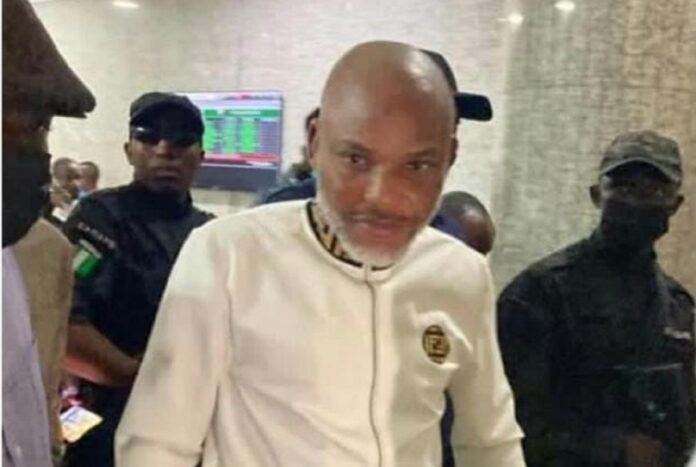A federal high court in Abuja has refused to grant bail to Nnamdi Kanu, leader of the proscribed Indigenous People of Biafra (IPOB).
Binta Nyako, presiding judge, however ordered an accelerated hearing of the seven-count terrorism charge preferred against Kanu.
After Kanu’s extradition in June 2020, the federal government filed terrorism charges against him.
In April 2022, Nyako struck out eight of the 15 counts in the charge.
The remaining seven counts were also quashed by the court of appeal on October 13, 2022, with the judge ordering Kanu’s release.
However, on October 28, 2022, the court of appeal granted a stay of execution on its verdict discharging Kanu, after the federal government filed an appeal at the supreme court.
On December 15, 2023, a five-member panel of the apex court reversed the verdict of the appeal court and ordered Kanu to resume his trial before the federal high court.
‘KANU’S HEALTH DETERIORATING’
Moving a fresh bail application on February 26, Aloy Ejimakor, one of Kanu’s lawyers, said the health of the IPOB leader is deteriorating.
The lawyer told the court that Kanu has a serious heart condition which has been confirmed by a federal government-owned hospital.
“Our humble submission is that the medical condition of the defendant speaks for itself and the health challenge persists despite the treatment offered him by the detaining authority,” Ejimakor said.
Ejimakor added that his client is unable to adequately prepare for his defence in the custody of the Department of State Services (DSS).
He said operatives of the DSS “eavesdrop” on confidential conversations between Kanu and his legal team.
However, Adegboyega Awomolo, prosecution counsel, opposed the bail application.
The senior advocate of Nigeria (SAN) prayed the court to dismiss the application and order an accelerated hearing of the case.
Awomolo said the DSS has been giving Kanu proper care, adding that the IPOB leader has failed to show the court that he would not jump bail.
However, the application was refused and the court ordered the prosecution to call its first witness.







